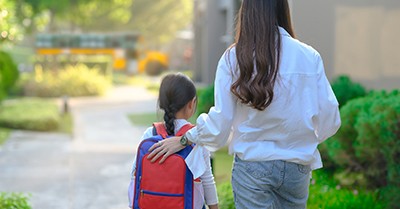Kindergarten is a joyful and important year in your child’s learning journey. It builds the foundation for school readiness through play, relationships, and exploration. But every child develops at their own pace—and readiness isn’t just about knowing letters or numbers. This factsheet offers a holistic view of what “readiness” might look like, helping you reflect on your child’s strengths, needs, and personality.
What Does “Ready” Really Mean?
Kindergarten readiness is about your child’s ability to:
- Engage with others
- Express emotions
- Try new things
- Follow routines
- Begin developing independence
It’s not about being perfect—it’s about being supported.
Key Questions to Consider
Ask yourself:
-
Help-seeking
Does my child ask for help when they’re unsure or upset? -
Confidence
Are they comfortable approaching familiar adults and children? -
Respect
Can they follow basic rules and treat others kindly? -
Curiosity
Do they enjoy exploring new activities or ideas? -
Emotional regulation
What helps them calm down when they’re frustrated or overwhelmed? -
Instructions
Can they follow simple two- or three-step directions? -
Independence
Are they beginning to manage tasks like toileting, dressing, or packing their bag? -
Play skills
Do they initiate play or join in with others?
What Does School Readiness Look Like at My Child’s Early Learning Centre?
At your child’s early learning centre, school readiness is nurtured through everyday play, relationships, and routines—not formal testing or pressure. Educators focus on building the skills and confidence children need to thrive in Prep and beyond.
Here’s how readiness is supported:
Through Play-Based Learning
- Children explore ideas, solve problems, and express themselves through play.
- Educators observe and extend learning based on each child’s interests.
Through Emotional and Social Development
- Children learn to manage emotions, take turns, and build friendships.
- Educators model respectful communication and help children navigate challenges.
Through Daily Routines and Independence
- Children practice packing bags, toileting, dressing, and managing transitions.
- Visual schedules and gentle prompts support self-help skills.
Through Language and Communication
- Educators encourage storytelling, conversations, and expressive language.
- Children learn to ask questions, share ideas, and follow instructions.
Through Family Partnerships
- Educators share observations and reflections with families.
- Families are invited to contribute to planning and celebrate progress together.
School readiness is not a checklist—it’s a journey. Your child’s educators are here to walk alongside you, offering insight, encouragement, and support every step of the way.
My Child Is Not Interested In Writing, or Learning Letters or Numbers Does That Mean They Are Not Ready For School?
Not at all. A child’s lack of interest in writing, letters, or numbers does not automatically mean they’re not ready for school. School readiness is much broader than academic skills—it’s about how your child engages socially, emotionally, and independently in everyday situations.
Here’s what really matters when considering school readiness:
Emotional and Social Readiness
-
Can your child express their needs and feelings?
-
Do they seek help when needed?
-
Are they learning to regulate emotions when things get tough?
Confidence and Curiosity
-
Are they willing to try new things, even if they’re unsure?
-
Do they show interest in play, stories, or exploring their environment?
Communication and Relationships
-
Can they follow simple instructions?
-
Do they interact with familiar adults and peers?
-
Are they learning to take turns and share?
Independence and Routine
-
Can they manage basic self-help tasks like toileting, dressing, or packing their bag?
-
Do they understand daily routines and transitions?
What About Writing and Letters?
Children develop literacy skills at different rates. Some may love drawing and storytelling but show little interest in writing letters. That’s okay. Prep teachers are trained to support children at all levels and build literacy through play, conversation, and exploration.
Instead of worrying about formal writing, focus on:
-
Reading together and talking about stories
-
Encouraging drawing, scribbling, and mark-making
-
Playing games that build fine motor skills (e.g., playdough, threading, scissors)
Every child’s journey is unique—and you don’t have to navigate it alone. Your child’s educator is here to support both you and your child as you prepare for this exciting next step.
How Educators Can Help
Your child’s early childhood teacher can:
- Share observations about your child’s development
- Help identify areas for support
- Offer strategies to build confidence and independence
- Guide you through the transition process
School readiness is not a race; it’s a relationship. By focusing on emotional safety, social confidence, and curiosity, you’re helping your child step into learning with joy and resilience. If you’re unsure whether your child is ready for kindergarten, the best place to start is a conversation with their educator. They know your child’s strengths, interests, and learning style and can offer thoughtful, personalised guidance.
Further Reading
School Readiness Checklist Aligned To EYLF Outcomes
School Readiness Program
How Play Based Learning Supports School Readiness
What Is School Readiness
How To Prepare Preschoolers For School - School Readiness
How To Approach School Readiness Planning For Preschoolers
School Readiness In Early Childhood
Critical Reflection Questions For School Readiness
Reframing School Readiness Through Play, Agency, and the EYLF
Deferring School Entry: A Strengths-Based Approach to Readiness
Supporting Children's Transition To School
